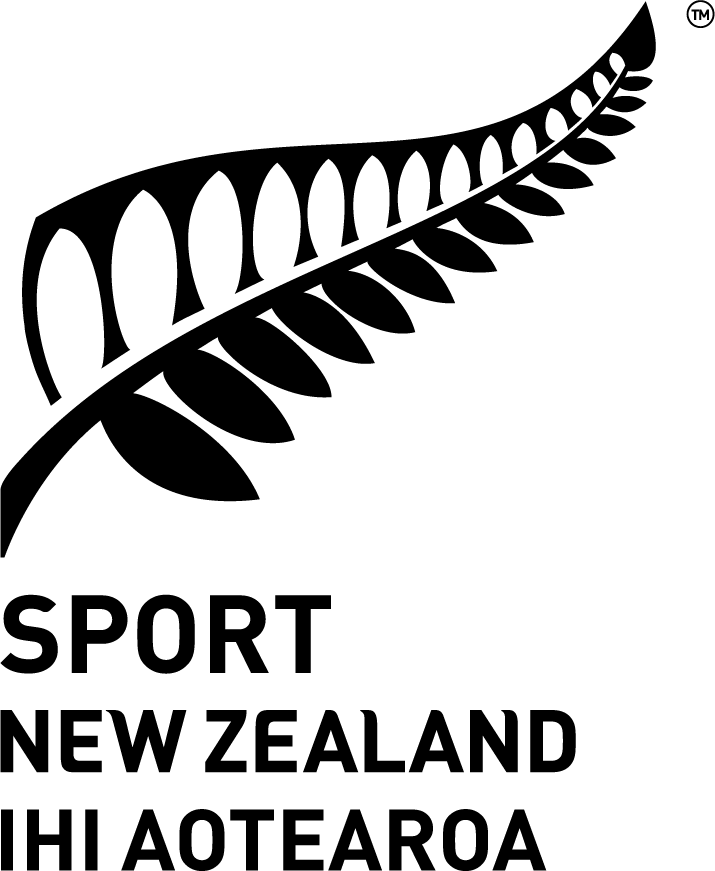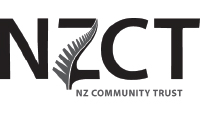Grant Funding - What Exactly Can You Apply For?
18 September 2023

Your club, organisation, school has decided that you should apply for a grant to cover some expenses, but what exactly can you apply for and from whom?? Funders have different focus areas, priorities, and allowable expense items that you can apply for. At first it may seem a little overwhelming if you haven't applied for grants before, but it is worth persevering and is simpler the second time you apply as you use the same documentation.
Submitting an application without having determined if the funder that you’re applying to can actually fund your request is wasting your time – and theirs! You need to read the authorised purpose statements for each funder to determine what they can and can’t fund and be aware that authorised purposes can be reviewed annually.
To save you quite a bit of time, this article gives you a good idea as to what you can apply for from whom. It doesn’t list all funders and for those included it doesn’t necessarily contain all of the authorised purpose (you need to go to the funder’s site to read the full list) but for sport and active recreation organisations it’s a quick ‘go to’ guide for who funds what.
The following funds are covered in this article (clicking on their name below will take you to their website).
- Four Winds Foundation
- Grassroots Trust Central
- Hutt Mana Trust
- NZCT
- One Foundation
- Pelorus Trust
- Pub Charity
- The Lion Foundation
- Trust House Foundation
- Tū Manawa Active Aotearoa
Information has been taken straight from each funder’s website and is correct as of August 2023. The amount of content included in this article for each funder reflects how much information is on their website – some are more comprehensive than others.
Four Winds Foundation
Support for the provision and maintenance of facilities, equipment, services, playing uniforms for sporting clubs and amateur sporting teams affiliated to the appropriate regional or national body and playing in recognised, published leagues or competitions.
Note, all items funded must remain the property of the recipient organisation, e.g. sports equipment and uniforms.
Grants to educational, cultural and sporting organisations for scholarships or equipment that is administered by the recipient educational organisation
Examples of their non-authorised purposes include catering, refreshments, entertainment, after-match and social functions (anything to do with social events/trips), dress uniforms, fuel costs, prizes, personal usage (must be common), funding to support fundraising.
Grassroots Trust Central
Funding for amateur sport which meets the stated criteria, including the provision and maintenance of facilities, equipment, uniforms, services, playing and training costs.
Hutt Mana Trust
This funding round is currently open!! They can fund facilities, equipment, and/or playing uniforms for sporting clubs playing in recognised, published leagues or competitions. Sporting events or tournaments; travel and accommodation costs. Youth focused organisations or training organisations for equipment or scholarships that are administered by the recipient organisation. Recognised cultural, health, environmental, recreational or philanthropic activities or groups within the local community. (NB: There are also other purposes e.g. welfare).
In addition to what’s listed above, examples of successful applications include training to upskill volunteers, resources and equipment for youth development and recreational projects, laptops and mobile phones for coordinators, assisting with costs of venue hire, equipment for Playcentres, transport costs, wages, affiliation fees, purchasing a heat pump.
NZCT
Most expense items necessary to play a sport, apart from those of a personal nature, will be considered. This includes uniforms, grounds maintenance, sports equipment, first aid kits and coaching as well as all of the following:
Travel and accommodation:
Travel and accommodation costs for teams attending tournaments in New Zealand will be considered, provided costs are actual and reasonable and an official invitation or itinerary endorsed by the host's national body is supplied.
Vehicles:
Grants to help buy vehicles will generally be considered only in exceptional circumstances and generally only for disadvantaged groups that need a vehicle to help their members. Vehicle ownership must remain in the hands of the applicant organisation.
Salaries:
Grants for wages and salaries may be considered providing that the payment of a wage is necessary to achieve an authorised purpose and will clearly result in the development of the applicant organisation. Applications for salaries/wages must be supported by an employment contract, job description and a list of key performance indicators. Preferably, the employment contract will be signed by the person in the role. However, in circumstances where a person is not yet in the role (e.g. a new or vacant role), NZCT may still award a grant for this purpose, but will generally not pay out the awarded grant until a signed employment contract is provided. NB: The person(s) in the position(s) being applied for must not be a signatory or contact person for the grant application.
Social activities:
The only social activities that may be eligible for a grant are those that directly benefit disadvantaged groups or are considered by NZCT's Net Proceeds Committee to be for the benefit of the wider community, e.g. public concerts and seasonal community parades or festivals.
Advertising:
Grants for advertising will be considered, provided the activity or event to be promoted is entirely non-commercial and benefits the wider community. This includes:
- advertising to encourage participation in amateur sport
- promotion of public amenities, such as parks or museums
- advertising for charitable appeals
- advertising for non-profit cultural events.
Educational purposes:
Grants for essential, safety-related or sporting equipment for educational or training organisations, including kindergartens, play centres and schools will be considered case by case.
Grants for scholarships for further education, or personal development leading to a wider community or sporting benefit, will be considered case by case. Generally, any approved grant would be made to the education provider rather than an individual.
One Foundation
Donations to amateur sport teams and clubs competing in recognised leagues and tournaments.
Ground Hire. Playing uniforms. Provision of actual and reasonable travel expenses for groups participating in tournaments with kindred groups. Sports Equipment.
Recognised cultural and community organisations to further the objects of those groups. Programs that support youth at risk. To provide for the maintenance, refurbishment and well-being of local marae.
Pelorus Trust
Grants shall benefit only the amateur sport where the aim shall be to assist participants to play their sport, improve their skills and generally participate in a healthy recreational activity. Grants may benefit the sport of racing through the provision of facilities and grounds maintenance only. Pelorus will fund a lot of expenses, however they will not fund salaries.
Note, it is worth reading their Additional Funding criteria which include (this is not the full list):
- The percentage contribution of the applicant's own fundraising efforts.
- The potential community benefit of the funding.
- Whether the applicant has received funding from the Trust or elsewhere, previously.
- Whether the applicant has sought funding from other gaming trusts for the same purpose at the same time.
- The structure, legal status and longevity of the applicant.
Pub Charity
Generally, grants paid should provide some enduring or demonstrable community benefit. As an example, this may be asset or facilities funding or contributing towards community or sports development projects.
In most instances applications for salaries and wages, affiliation fees, catering, operating costs, and non-service vehicles will not be supported but in looking at the last round of approved applications, some salaries and wages have been approved, so it’s definitely a case-by-case basis.
Looking at the last round, it’s interesting to see the sort of things that are funded.
- Senior Rugby Bus hire transportation for away games and sport equipment
- Assisting with the cost of lane/gym hire /coaches salaries (swim club)
- Advertising, venue and transport costs for walks (coded as Event Costs)
- Funding towards the costs of a Fire Alarm, Fire Exits and connection to Fire Brigade
- Trophies, prizes and life member badges for end of season prize giving (coded as Sports Equipment)
- Funds to assist in covering our Audit costs for our community projects
- Creating more opportunities for students to be active during break times (Sports Equipment)
- Coaches education and qualification
- Facility hire (coded to Rent or Venue Hire)
- Traffic Management costs for event
Looking at the approval lists gives you a good idea of what you could be applying for. You are only meant to be approved by Pub Charity once per year, so use your one application wisely!
The Lion Foundation
Funding is distributed between the areas of community, which includes arts and culture (30%), health (15%), sport (40%) and education (15%). Take a look at the monthly summary reports to see the variety of things that the Lion Foundation funds.
NB: Although we will consider vehicle leases and the purchase of a vehicle to carry out the day to day business of an eligible organisation, we cannot fund the purchase or subsidy of vehicles to be used for private or commercial activities, social functions or motor sport. We do not fund fuel charges.””
Trust House Foundation
Most expense items necessary to play a sport, apart from those of a personal nature, will be considered. This includes uniforms, grounds maintenance, sports equipment, first aid kits and coaching. Travel and accommodation costs for teams attending tournaments in New Zealand will be considered, provided costs are actual and reasonable and an official invitation or itinerary endorsed by the host’s national body is supplied.
Grants to help buy vehicles will generally be considered only for disadvantaged groups that need a vehicle to help their members. Vehicle ownership must remain in the hands of the applicant organisation.
Grants for wages and salaries may be considered providing that the payment of a wage is necessary to achieve an authorised purpose and will clearly result in the development of the applicant organisation. Applications for salaries/wages must be supported by an employment contract, job description and a list of key performance indicators.
The only social activities that may be eligible for a grant are those that directly benefit disadvantaged groups or are considered by THF Foundation to be for the benefit of the wider community, e.g. public concerts and seasonal community parades or festivals.
Grants for essential, safety-related or sporting equipment for educational or training organisations, including kindergartens, play centres and schools will be considered case by case.
Grants for advertising will be considered, provided the activity or event to be promoted is entirely non-commercial and benefits the wider community. This includes: •Advertising to encourage participation in amateur sport •Promotion of public amenities, such as parks or museums •Advertising for charitable appeals •Advertising for non-profit cultural events
Trust House Foundation have a great booklet outlining all of the above along with what can’t be funded. Check it out here
Tù Manawa Active Aotearoa
Managed by Nuku Ora, Tū Manawa Active Aotearoa provides funding for programmes or projects in the Wellington region delivering play, active recreation, and sport experiences for tamariki and rangatahi. These may be new or already operating.
We know from research that there are some groups who are more at risk of missing out or being less active, including children and young people in higher deprivation communities, girls and young women (5-24), and disabled children and young people (5-18). Programmes or projects that reach these groups are prioritised for funding.
The following can be funded:
- Venue or equipment hire
- Costs of transport to the event
- Support for volunteers or activity delivery staff
- Equipment (only where this is required as part of a project or activity)
- Officials, where these are required for the delivery of the opportunity
- Costs associated with promoting your activity
Final comments:
If in doubt, contact the funder and ask them if what you’d like to apply for is ok (and how likely it is to be approved – some funders will fund salaries but if it’s low on their list of saying yes to, they might tell you not to bother if they have a lot of other more relevant applications). Another way to check what they tend to fund is looking at the lists on their website of successful applicants.
No funder can fund something that is retrospective. If money has already been paid for the goods/services, then you can’t apply for funding for it.
Note: Some funders are fine with your application having been completed by a 3rd party and them seeking commission as part of the grant application, and other funders don’t allow this. Again, you need to read each authorised purpose to determine if this is allowed or not.
With the exception of grants to national societies or agencies, Class 4 funds are mainly distributed within the local community in which they are raised – so remember to check that who you’re applying to has venues in your area.
If you haven’t read it already, read my last article called The Funding Landscape for the Wider Wellington Region an overview on who provides funding.
Written by Kirsten Kilmister, August 2023.







